Expropriation
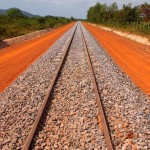
The Constitution of the Kingdom of Cambodia and the Land Law of 2001 both guarantee an individual’s right to property protection. Though part of the Government’s policy framework since 2002, not until 2010 did a legal framework exist to govern the process by which the ...
Investment
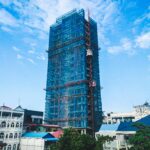
Cambodia restructured its economy after many years of protracted war and instability. The economy grew strongly following the country’s transition to a free-market economy as it opened to trade and capital flows. Growth was supported by the flow of development assistance, access to the European ...
Environment and natural resources policy and administration
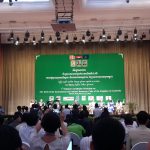
The 7th National Consultation Workshop on the Draft of the Environment and Natural Resource Code of the Kingdom of Cambodia. Photo by Open Development Cambodia, taken on 22 March 2018. Licensed under CC BY-SA 4.0.With 76% of its people living in rural areas,37 Cambodia holds ...
Private land
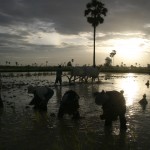
Rights to private land ownership were guaranteed in the 1993 Constitution and formally established by the 2001 Land Law. Despite an established legal framework to protect private property rights, those rights are often insecure for many. ...
Head of state
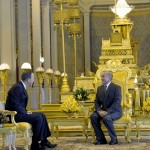
The Kingdom of Cambodia is a constitutional monarchy. The king is the head of state for his lifetime but does not govern. ...
SDG 17 Partnerships for the goals
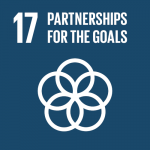
SDG 17 – “Strengthen the means of implementation and revitalize the global partnership for sustainable development” – is about bringing governments, civil society, the private sector and other actors together to help achieve the 2030 Agenda. There are 19 global targets and 25 indicators. The targets ...
Overview of policy and legal framework
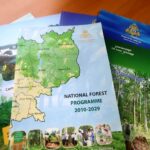
Environmental protection and conservation are given high priority in the Royal Government of Cambodia’s guiding strategy, the Rectangular Strategy Phase III (2014–2018). ...
Vocational education
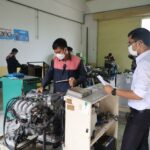
By definition, Vocational education refers to the program that enables people to acquire highly transferable and development skills. It also grants people the necessary technical skill for their desired career.95 Cambodia’s vocational education plays an important role during the country’s economic structural transition and the ...
Public land lease
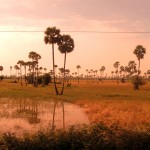
Public land leases are grants of state lands to private entities in the form of a contractual rental agreement. These leases often take the form of land concessions, in particular economic land concessions. They are often associated with land conflicts and disputes. ...
SDG 14 Life below water
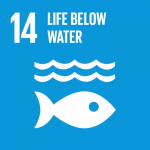
Sustainable Development Goal 14 is primarily about the interactions of humans with the oceans. Specifically, it aims to conserve and manage the use of oceans, seas and marine resources for sustainable development.159 A UN General Assembly call for action has been used to clearly articulate ...
Environmental impact assessments
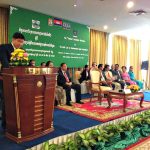
The primary legal requirements for environmental impact assessments (EIAs) in Cambodia are set out in Content II, Book V of the Environment and Natural Resource Code231, Chapter III of the Law on Environmental Protection and Natural Resource Management 1996232(EPNRM Law), and the Sub-Decree no. 72 ...
Aid and development
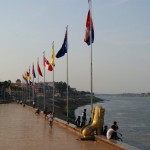
Following the Paris Peace Accords signed in October 1991, Cambodia has received a significant amount of global support for its development and post-conflict work. In 2014, 30 – 40 percent of the country’s national budget is funded through development assistance, placing Cambodia among the most ...
Land classifications
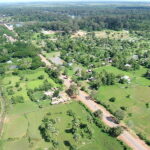
Land in Cambodia is divided into three classifications: private property, state private property and state public property. The distinction between state private property and state public property is essential to determining how state land is to be used. ...
Forests and forestry

Cambodia’s forests have seen a significant reduction of total forest and dense forest cover in recent years, the growth of plantations, particularly rubber, and an ongoing problem with illegal logging. ...
Legal aid providers

Legal aid is provided either by the Bar Association of the Kingdom of Cambodia (BAKC), internationally funded Non-Governmental Organizations (NGOs) and public interest law firms. A special legal team under the supervision of the Prime Minister, aiming to assist impoverished women, particularly those in prison, ...
Ethnic minorities and indigenous people policy and rights

Cambodia is known for its rich cultural diversity, including ethnic minorities and indigenous communities. As the country has developed, efforts have been made to recognize and protect these groups’ rights through policies and initiatives to promote inclusivity, preserve cultural heritage, and address issues such as ...
SDG 10 Reduced inequalities
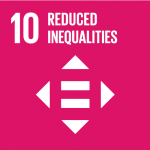
The 2030 Agenda was developed to reflect that “the international community has made significant strides towards lifting people out of poverty (). However, inequality still persists and large disparities remain in access to health and education services and other assets”. 302Although the number of people ...
Land transfers
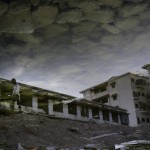
Land transfers in Cambodia assume a variety of forms involving both public and private entities. The right to transfer property to another and to be protected from forced transfer is essential to land tenure security. Land transfer capacity is a source of value for landowners, ...
SDG 7 Affordable and clean energy
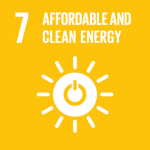
SDG 7 focuses on affordable, reliable and sustainable access to modern energy services. This includes ensuring universal access to energy services (SDG 7.1), increasing the proportion of renewable energy sources used to supply these services (SDG 7.2) and doubling the rate of energy efficiency improvements ...



